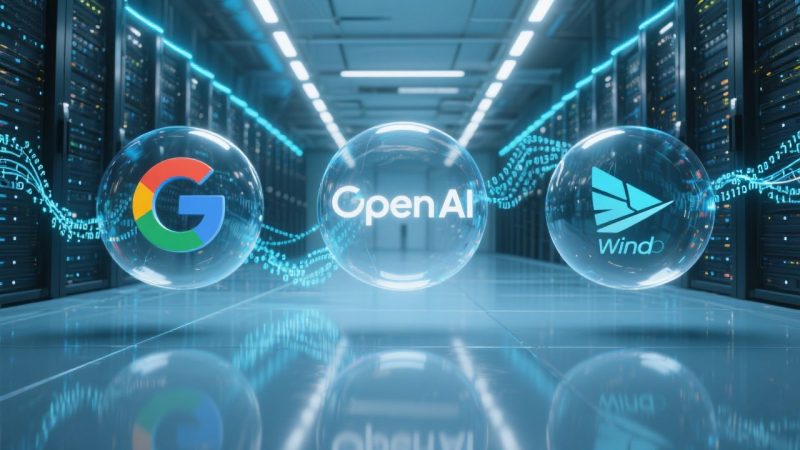
The Deal That Wasn’t: OpenAI’s $3 Billion Bid Unravels
For months, OpenAI was poised to snap up Windsurf, the AI coding startup that’s been the talk of developer circles and venture capital Slack channels alike. The$3 billion deal was all but inked, with OpenAI eager to fold Windsurf’s agentic coding technology into its own arsenal. But as the exclusivity window on OpenAI’s offer quietly expired, the chessboard shifted. Windsurf, founded by MIT alums and once known as Codeium, suddenly had options, and Google was waiting in the wings, ready to pounce.
Google’s Stealth Move: Talent, Not Ownership
In a maneuver that feels more like a Silicon Valley heist than a standard acquisition, Google DeepMind swooped in, hiring Windsurf’s CEO Varun Mohan, co-founder Douglas Chen, and a select group of the company’s top researchers. The price tag? A reported $2.4 billion, not for the company itself, but for a non-exclusive license to some of Windsurf’s technology and, crucially, the minds behind it. Windsurf remains independent, its core team and product intact, but its leadership and a chunk of its intellectual firepower are now headed to Mountain View to work on Google’s Gemini and other agentic coding projects.
Windsurf’s Future: Independence, but at What Cost?
Windsurf’s interim CEO, Jeff Wang, was quick to reassure customers that the company’s enterprise-grade AI coding tools aren’t going anywhere. The majority of Windsurf’s 250-person team will stay put, continuing to build and sell their product. But the loss of Mohan and Chen is a gut punch. If history is any guide, startups that lose their founding visionaries to Big Tech often struggle to maintain momentum. Scale AI’s customer exodus after Meta’s talent raid and Inflection’s pivot post-Microsoft are cautionary tales that loom large.
The Broader Game: Why Google’s Play Matters
This isn’t just about one startup or a single product. The AI arms race has entered a new phase, where outright acquisitions are less attractive than what some call “reverse acqui-hires,” with Big Tech poaching talent and licensing tech, sidestepping regulatory scrutiny and the headaches of full integration. Google’s move is a direct response to the growing importance of AI coding tools, a space where Anthropic, OpenAI, and now Google are all vying for developer mindshare. The Gemini team, already flush with resources, just got a jolt of fresh expertise and, perhaps more importantly, denied OpenAI a critical advantage.
OpenAI’s Setback: Microsoft Tensions and a Talent Drain
For OpenAI, the collapse of the Windsurf deal is more than a missed opportunity. It’s a public stumble at a time when the company is already grappling with internal tensions and a high-profile talent drain to rivals like Meta and Google. The failed acquisition also complicates OpenAI’s relationship with Microsoft, its largest backer, which reportedly bristled at the idea of Windsurf’s tech falling under OpenAI’s exclusive control.
The Takeaway: A New Playbook for AI Power
What’s striking about this episode isn’t just the money or the headlines. It’s the evolving playbook. In 2025, the real power moves in AI aren’t about buying companies, but about buying access: to people, to ideas, to the next leap in capability. Google’s Windsurf coup is a masterclass in this new strategy, one that will almost certainly be studied and imitated by every player in the AI race.
